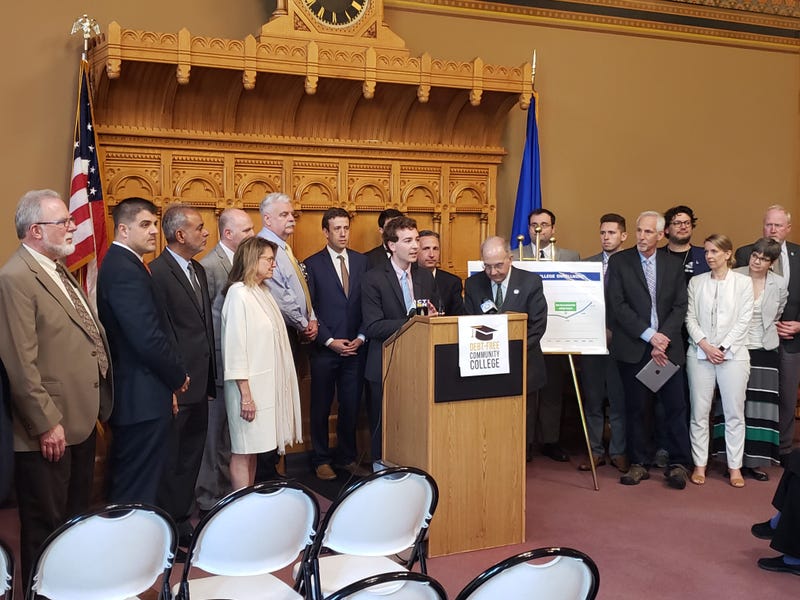
HARTFORD, Conn. (WTIC) – State Democrats gathered at the Old Judiciary Room at the State Capitol for a news conference to acknowledge and cheer a component of the state budget that makes community college debt free.
The program attempts to curb a decline in enrollment in Connecticut community colleges by helping students (regardless of income) attend those institutions cost-free.
With a start date of fall 2020, projections say the investment in community college programs could increase enrollment by well over 2,300 students in the first year, helping nearly 7,000 students receive education without paying tuition or fees.
Additionally, the program requires students to submit the FAFSA or any other financial aid forms. If the grant and/or federal financial aid is not enough to cover student’s cost in community college, the program would fill the financial gap.
The Office of Fiscal Analysis estimates the program will cost roughly $6.1 million in Fiscal Year 2021 along with a $2 million cost to implement the program.
Plans to fund the program hinge on the legalization of online lottery games, such as Powerball and Mega Millions.
Lottery officials anticipate selling games online would raise an additional $5 million in the first year and $8 million in the second. However, one of the online games – Keno – already has an agreement where the state shares a portion of those funds with tribal casinos in Connecticut.
Despite this, and with a start of 2020, Democrats are confident Governor Ned Lamont can help move through legalization of iLottery games for the program. Furthermore, should those funds prove inefficient, or if the Governor believes online lottery games would not work, the state would then deal with the shortfall.
Legislators do not anticipate funds being insufficient or unable to cover the costs, as nearly 60-percent of full-time students enrolled in community college are effectively attending for free with financial aid already in place.
Several local entities support the debt-free community college program including Connecticut Coalition for Achievement Now Executive Director Subira Gordon, Connecticut State Colleges and Universities President Mark Ojakian, Congress of Connecticut Community Colleges President Ryan Bonita and several students who gave public testimony during the hearing process for the legislation.
